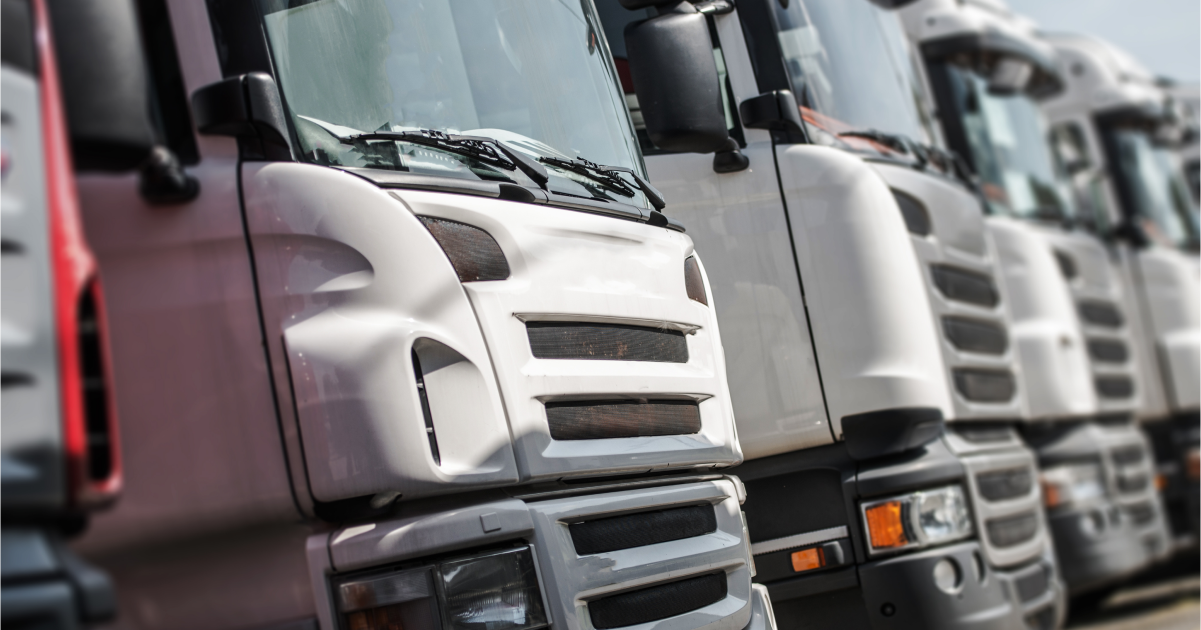Poles block the border with Ukraine: what are the demands of the protesters, and why can't the parties reach an agreement?
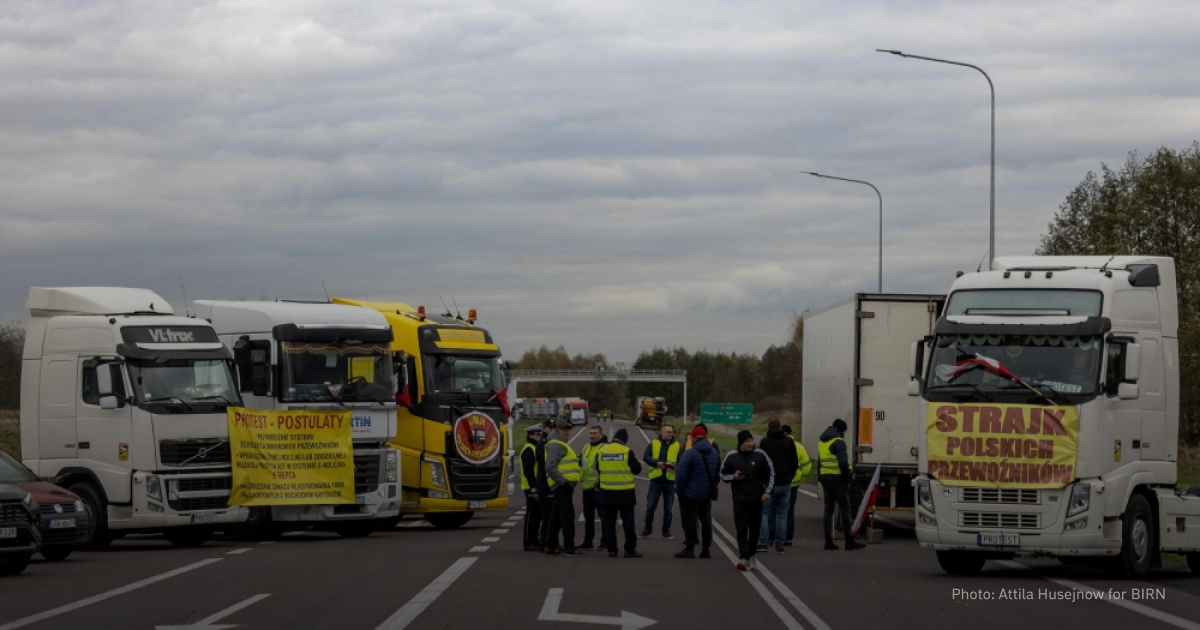
What happened?
On November 6, Polish carriers began blocking three of the four largest border crossings on the Polish-Ukrainian border: Hrebenne — Rava-Ruska, Korczowa — Krakovets, Dorohusk — Yahodyn.
They demand:
- return of permits for Ukrainian carriers, i.e. cancellation of the "transport visa-free regime";
- tightening of transport rules for foreign carriers in accordance with the European Conference of Transport Ministers;
- the impossibility of registering companies in Poland if their financial activities are not in the EU;
- creation of a separate queue for cars with EU licence plates;
- creation of a separate queue at all borders for empty trucks;
- gaining access to the Ukrainian Shliakh (Way — ed.) system.
Tomasz Borkowski, the organiser of the protest near the Korczowa — Krakovets checkpoint, told Ukrinform that they would only block the passage of trucks while humanitarian and military aid would be allowed through. He said the protest had been officially registered by Polish carriers with local authorities until January 3, 2024.
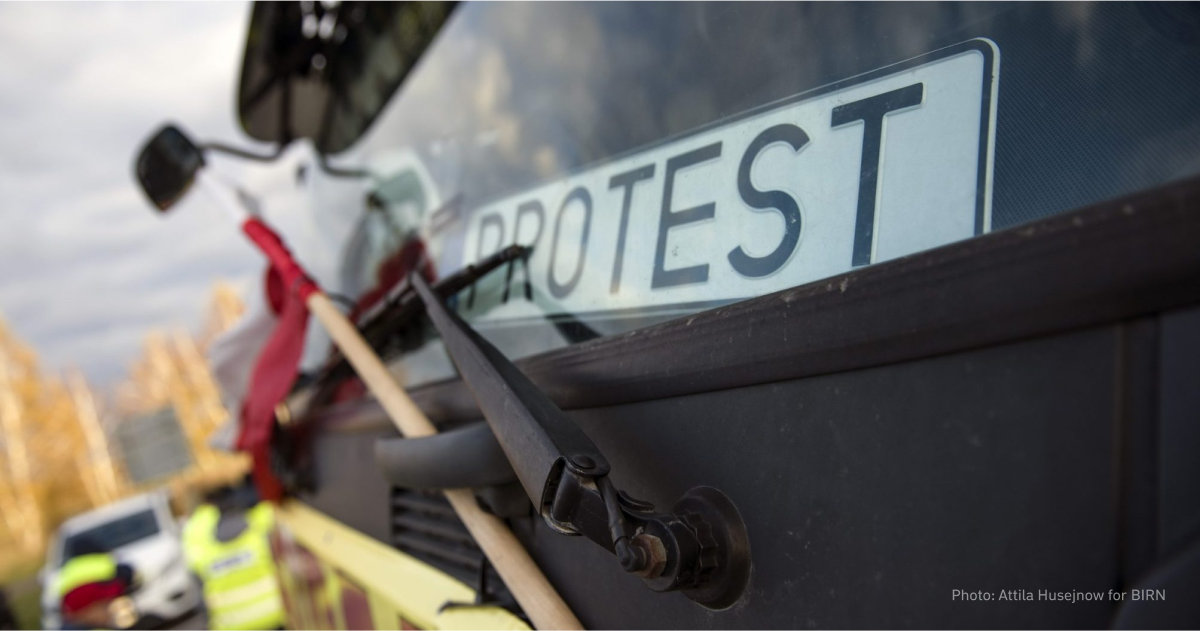
What is a transport visa-free regime?
Last June, Ukraine and the EU signed an agreement on road freight transport. Later, it was extended until 2024. It cancels the need for Ukrainian carriers to obtain bilateral and transit transport permits through the EU. The agreement helped to regulate transport logistics, which had been disrupted by the full-scale invasion.
According to the Ukrainian government, the transport visa-free regime has resulted in an increase in trade turnover. In July-September 2022, the physical volume of cargo exports increased by 54% and imports by 67% compared to April-June.
Far-right support for the protesters
The protesters were supported by the radical right-wing Confederation Party, which won 7.16% of the vote in this year's parliamentary elections and entered the Sejm.
At a joint conference with the carriers on November 3, one of the Confederation's leaders, Krzysztof Bosak, said: "We stand together with the leaders of the transport industry, with people who do business, with carriers who have decided to start blocking the border with Ukraine again on November 6. The carriers are resuming the strike because of unjustified expectations of the industry because of the very difficult situation... We will support the protests of Polish carriers."
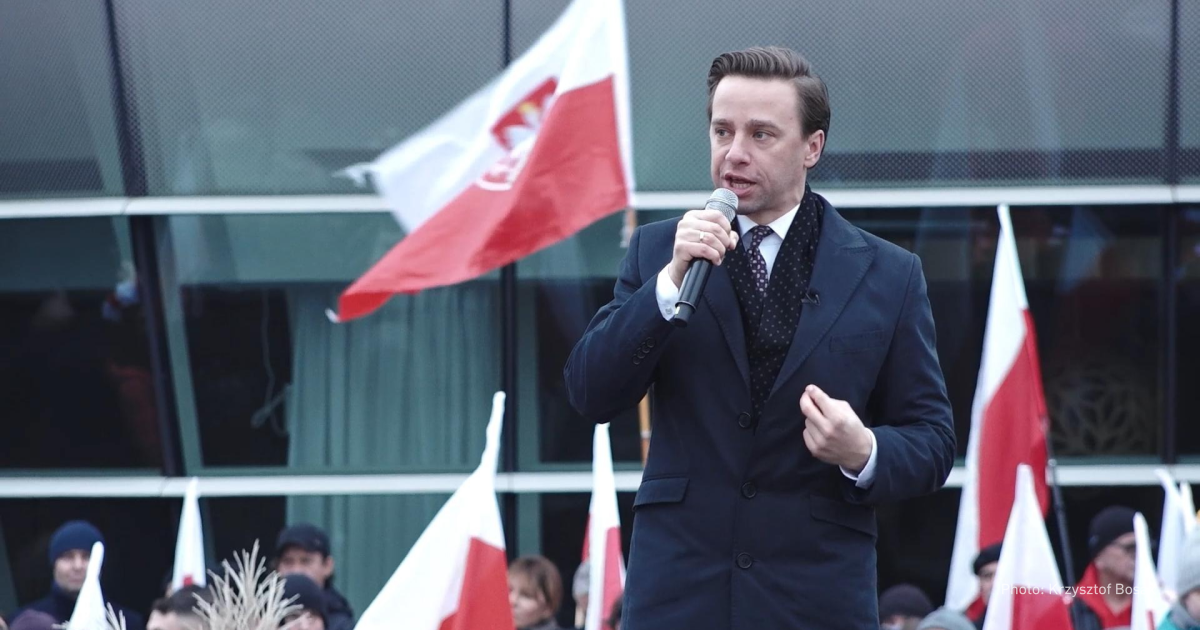
During the election campaign, the Confederation advocated a total embargo on the import and transit of Ukrainian products. This party has previously organised anti-Ukrainian rallies and is opposed to providing Ukraine aid.
What does the Ukrainian side say?
At the beginning of the protest, Serhii Derkach, Deputy Minister of Communities and Territories Development, told Forbes that the demands were unrealistic: "It seems that there is no desire to solve the problem".
But there is no real problem. Their blockade is just an opportunity to block the border for Ukrainian competitors: Ukrainians are 85% of those who cross the Ukrainian-Polish border to bring goods into Ukraine or export them,
Derkach said.
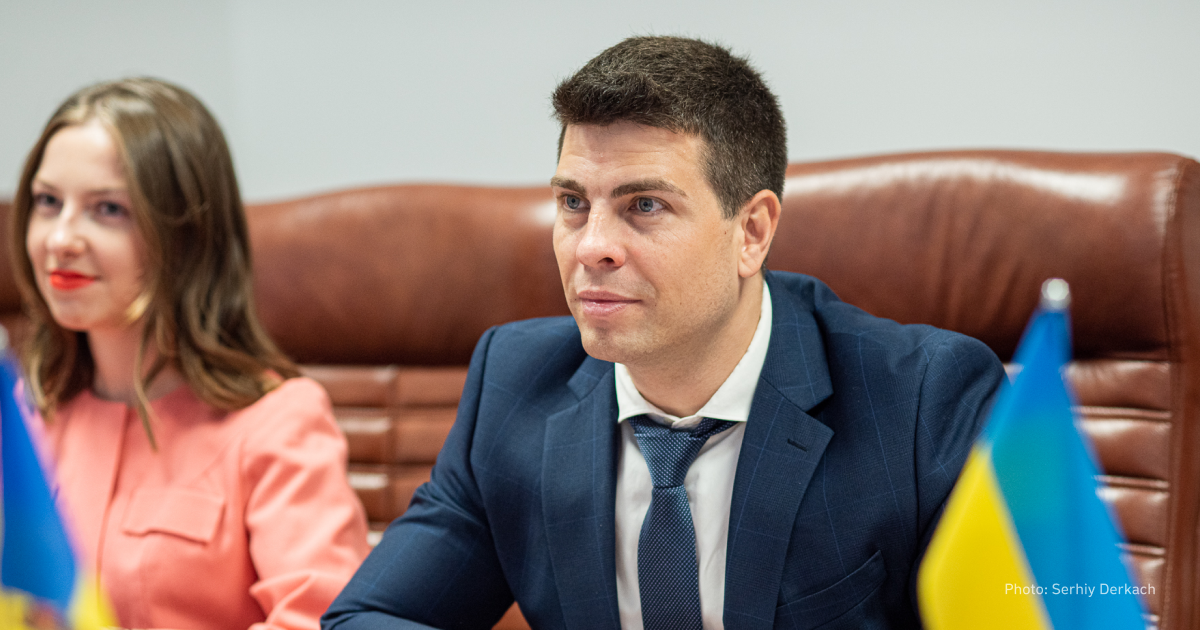
According to him, the problem of issuing permits even before the start of the full-scale invasion "was a complicated issue". In 2021, Poland was supposed to issue 200,000 permits a year to Ukrainian carriers, but it issued 160,000. This was not enough, even without the blocked ports: this number did not allow the carriers to grow and enter the European freight market.
Regarding the requirement to tighten the rules of transportation for foreign carriers, it is a matter of strict tender conditions for transport and carriers.
The Polish business community may now see the problem in the fact that our carriers are allegedly "collapsing" the freight tariff market in Europe. But this is not true: Polish carriers control the European market. Polish companies have the largest truck fleet in the EU,
explains the Deputy Minister.
Serhii Derkach called the demands not to register companies in Poland and to introduce a separate queue in the eCherha ( eQueue — ed.) for cars with EU licence plates "unrealistic", as no EU country has a separate queue for Ukrainian drivers.
Why did the parties fail to reach an agreement?
Serhii Derkach held talks with Rafał Weber, State Secretary of the Ministry of Infrastructure of Poland.
They discussed the functioning of the lanes for empty vehicles at the Yahodyn—Dorohusk checkpoint and the updating of the functionality of the eCherha system — the possibility of changing the driver of empty trucks.
The Ukrainian side also suggested allowing empty trucks to pass through the Uhryniv—Dolhobyczow checkpoint, where there is a special lane. The ministry said this option would allow empty trucks to reduce the waiting time at the border.
On November 13, representatives of Ukraine and Poland discussed the issue of unblocking the border. For the protesters, the key issue is the return to the system of permits for freight transport. For Ukraine, it is also a matter of principle: the "transport visa-free regime" should be extended, at least "until the war with Russia is won," says Derkach.
The absurdity of the demand is that the Polish protesters are not addressing their government but want Ukraine to apply to the EU for permits. They are not interested in other issues,
the deputy minister said.
He added: "The issue of further blocking the border is not so much about solving urgent issues and problems, but about making either a big communication campaign out of it or a political story and keeping the border closed as long as possible."
Ukraine has agreed to hold separate talks "on the basis of bilateral communication with the Polish government, with the voivodeships". In addition, a third party, the European Union, will be involved in solving the problem.
Rafał Mekler, the leader of the protest, said after the meeting that the Ukrainian side had not considered the protesters' demands. That is why the blockade continues.
What is the cost of blocking the border?
Earlier, Derkach wrote that every day of the blockade means huge losses, "and the question is who will compensate them", as it involves non-fulfilment of contracts, damage to goods and delays in delivery.
BBC Ukraine wrote that in less than a week of protests, it is too early to calculate the exact losses caused by delays in queues at the border: some people have just registered their cargo, others have not yet reached the border. But there are losses, not only for Ukrainian entrepreneurs but also for European companies operating in Ukraine.
